Does Antifreeze Expire? 4 Effects Of Using Old Antifreeze
Cars use an effective coolant like antifreeze, but it doesn’t need to be replaced often, so knowing how long it lasts and when it will expire matters.
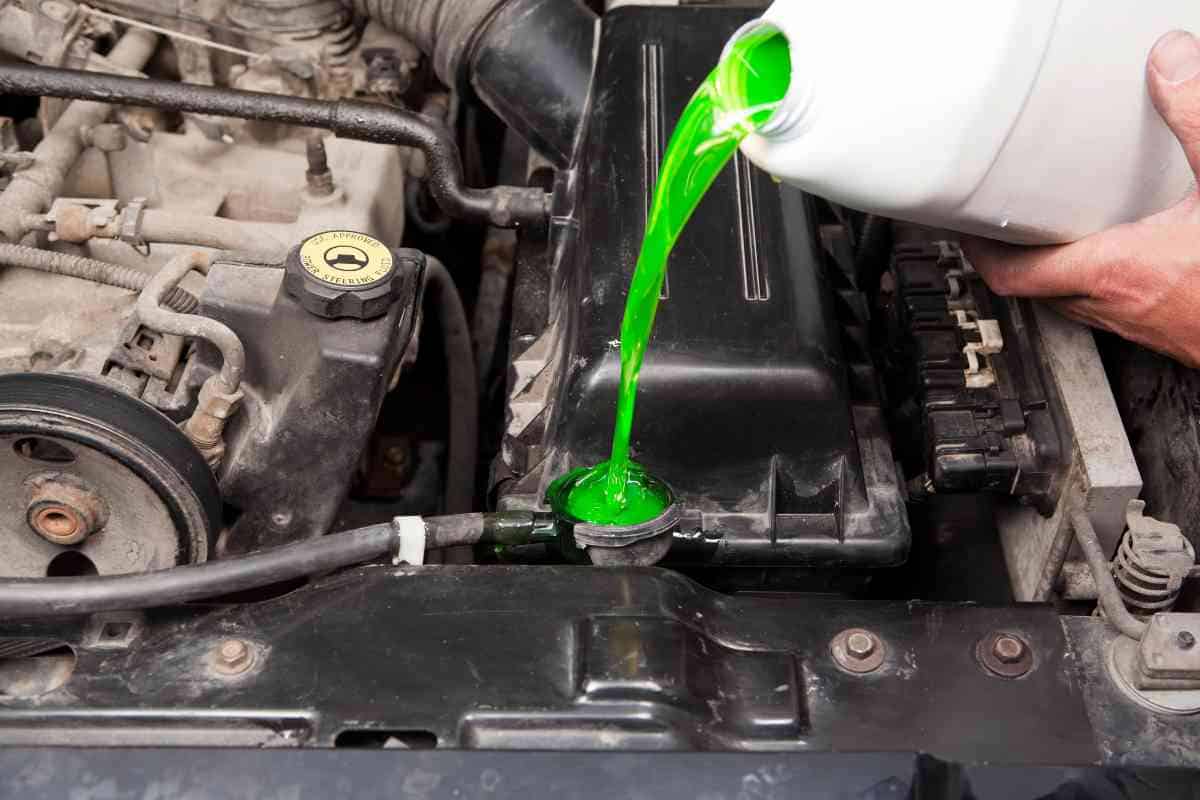
Does Antifreeze Expire?
Antifreeze does not expire when it is still sealed in the original container. It can last for over ten years when stored like this, but once it gets opened, the shelf-life decreases to around five years. Antifreeze also must be replaced every 30,000 miles when used in a car.
We have gathered information about antifreeze through personal experiences and by contacting manufacturers. They have confirmed that antifreeze has no shelf life and won’t expire unless it gets used or is left unsealed.
What Happens To Old Antifreeze?
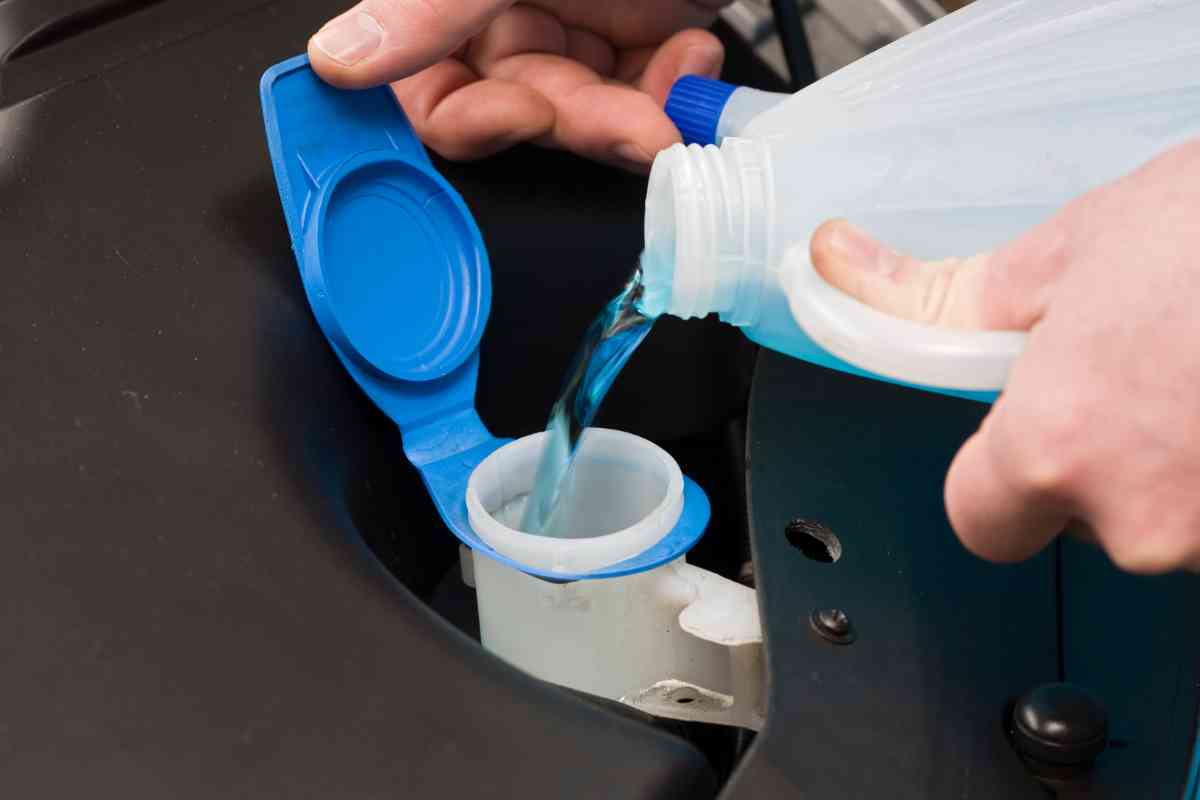
Unopened antifreeze does not expire, but it may lose effectiveness over time. Once it’s opened and unsealed, shelf life is worth monitoring.
It should last for at least five years, depending on where and how it’s stored. It can last much longer without an expiration date if it gets stored in an airtight jug or container so it doesn’t get contaminated.
Pure antifreeze will last much longer than a premixed coolant too. Leaving it unsealed at home provides at least ten years of shelf life, but generally, it can last forever.
The only thing that will happen when the antifreeze expires is that it will not be as effective at lowering the engine’s temperature when needed. Once the antifreeze gets used, the shelf life changes too.
For example, antifreeze in a car does not last the same as antifreeze still in the original container. We will explain the difference further.
How Long Does Antifreeze Last In A Car?
Antifreeze is a glycol-based fluid to protect the engine in extreme temperatures. It will regulate the engine and keep it operating at peak efficiency while outside temperatures drop to freezing levels.
Because of this, it will not last nearly as long in a car. The antifreeze has to be changed every 30,000 miles or so because it wears out over time and becomes contaminated with dirt and debris.
After continued use in difficult continues, antifreeze also loses its effectiveness, and it can cause issues with the engine. For example, outdated antifreeze will struggle to regulate the temperature.
Does Antifreeze Last for Decades?
Yes, antifreeze in a sealed bottle probably lasts that long, maybe even longer. The chemicals in the antifreeze are stable and do not turn into different chemicals over time.
However, this is only true if the seal remains intact. Chemicals that virtually never degrade may slowly or quickly change after exposure to other substances.
Does it Last Long if You Open the Container?
Yes, antifreeze still has a long shelf life even if you open the container. The shelf life is not indefinite, but it will still be ok after several years.
What Happens When Antifreeze Gets Old?
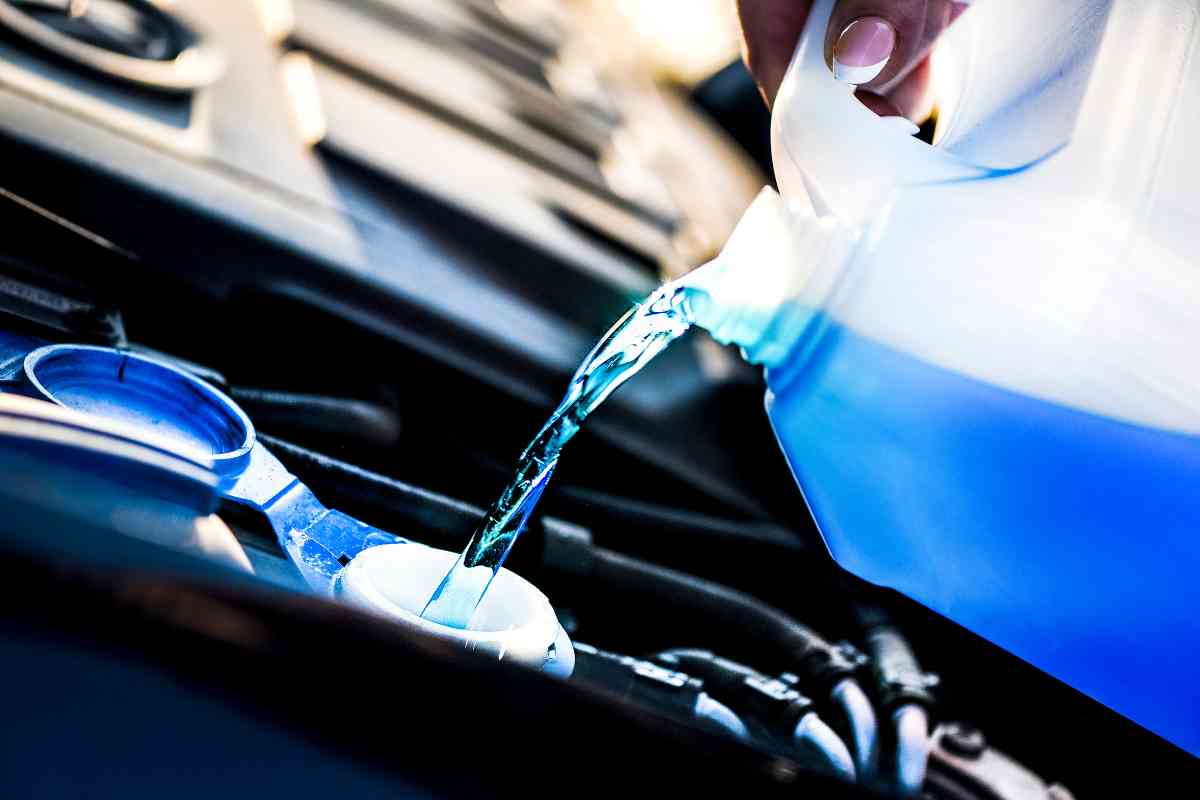
The expiration date on antifreeze refers to the time when it’s not safe to use the product because of changes in its chemical composition (e.g., loss of its ability to protect against freezing).
However, antifreeze doesn’t come with an expiration date. Other coolants have expiration dates because they contain a mixture of water and other compounds. However, the following occurrences are indicative that antifreeze is getting old.
Loss Of Effectiveness
The best way to store antifreeze is in an airtight container, preferably in a dark place. When using the antifreeze, it should be stored in an airtight container and put back into the original container after use.
Antifreeze can last long if it is appropriately stored and not used often. It starts to lose its effectiveness when it has been open or used for some time.
It can be hard for people to tell if their antifreeze has gone bad, but some indicators can help determine if it needs to be replaced.
Inaccurate Vehicle Temperatures
If we don’t change the antifreeze, it can cause the car to overheat, leading to serious damage inside the vehicle. This could also cause expensive engine-related repairs, which we must try to avoid.
When temperatures change, more antifreeze is used to help the vehicle adjust. However, older antifreeze won’t flow as freely, so temperatures can be too high or low and cause issues when driving.
Leaks
When antifreeze gets older, it becomes corrosive, which can be dangerous for the vehicle. It will cause issues with the radiator, and it’s common to see the vehicle leaking antifreeze underneath the car.
This is an easy issue to spot. You may be able to smell anti-freeze in your car, but fixing it can be expensive, so regular radiator checks are important.
Antifreeze Looks Contaminated
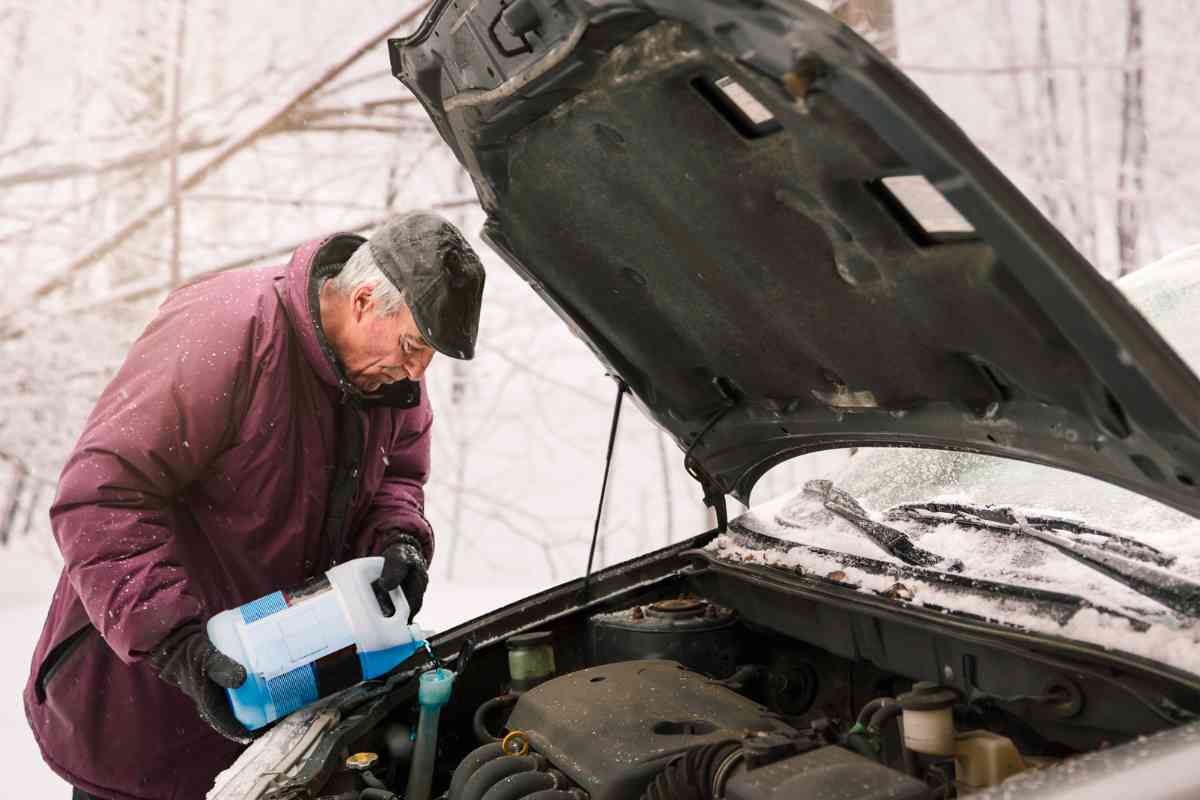
If the antifreeze starts to look contaminated, it may be time to replace it with fresh antifreeze. It can be dangerous to use contaminated coolant in a car.
The best way to tell if it’s time for new antifreeze is by looking at the color of the liquid. If it has turned brown or red and there are particles in the liquid, then it needs to be replaced with fresh antifreeze.
It also starts to look like rust is forming. This is one of the obvious ways to spot something that is wrong.
How To Store Antifreeze Safely To Last Longer
It is important to store unused antifreeze in its original, labeled container with a tightly sealed cap to last longer. Once the container gets opened, the seal needs to be restored, or it can become contaminated.
It can be stored in a garage or shed away from heat sources to prevent it from evaporating and becoming less effective. Try to keep these containers away from extreme temperature changes and sunlight to help with their shelf life.
The liquid works by lowering the temperature of the fluid inside the car’s engine, which helps to keep it from overheating.
When antifreeze is exposed to air, it starts to break down and lose its effectiveness. This means that it will not work as well as it should when needed most.
How Does Antifreeze Work?
Antifreeze is both harder to freeze and harder to boil than water. It doesn’t freeze until -35 Fahrenheit and it doesn’t boil until 223 degrees.
The low freezing point and high boiling point make it a good engine coolant. It won’t boil if the coolant heats up and it won’t freeze in the winter.
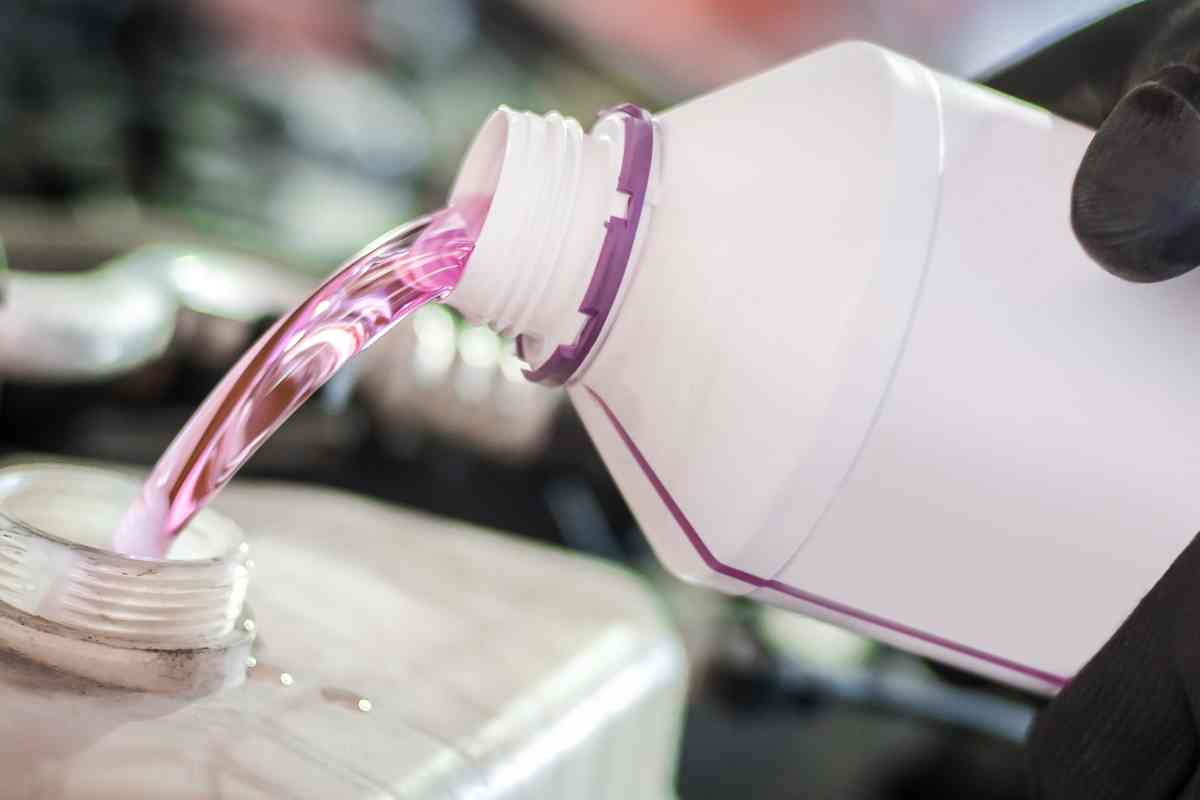
Antifreeze Prevents Corrosion
Antifreeze is a multi-purpose product. It can keep your engine cool, keep the mixed coolant from freezing, and prevent corrosion.
Car engines are made of many different metals. When these metals are together, they exchange electrons. This is called electrolysis and causes corrosion.
Additives in antifreeze prevent electrolysis and corrosion. However, these additives don’t work forever. You will have to replace your antifreeze or it will stop working.
How Do I Know If My Antifreeze Is Still Good?
The best way to check if antifreeze is still good is by using a tester or test strips. These test strips will analyze the coolant to see the freezing point and check whether it has become corrosive.
Using corrosive or bad antifreeze can damage a vehicle by causing corrosion in the radiator. This will damage the vehicle’s ability to monitor, maintain, and regulate temperatures, and the radiator will need to be cleaned and serviced.
The other alternative to test strips is an antifreeze hydrometer. This will measure the same things but faster and automated to see the antifreeze’s current freezing point and corrosiveness.
The antifreeze in the car should be checked once every six months or 30,000 miles. We also recommend topping off the current antifreeze during each check.
Does Antifreeze Lose Its Effectiveness When It Gets Older?
The chemical compound in antifreeze that is responsible for the cooling effect is called ethylene glycol. The effectiveness of this chemical compound starts to decrease slightly when it gets older, and it can’t do as good a job of preventing corrosion.
However, this doesn’t happen for many years, assuming the antifreeze is stored correctly. This changes once it gets opened and is used in a car.
The key is to replace antifreeze when it is one year old or sooner if there are any signs of leakage or deterioration while driving. The same is true for a car that hasn’t been used for a while.
Testing Antifreeze With a Multimeter
You can use a multimeter to test your engine coolant electrically. To do this, 1) put the multimeter’s positive probe in your coolant reservoir and 2) put the negative probe in the battery’s negative terminal. If the reading is more than 0.4 volts, your antifreeze is no longer good.
Is Antifreeze Dangerous?
Yes, it is dangerous for children because it has a somewhat sweet taste so a young child might drink it. While propylene glycol is not very toxic, ethylene glycol is worse.
Swallowed antifreeze breaks down into other chemicals that can harm many organs. Keep antifreeze out of reach of children and don’t store it in an unlabeled container. Get medical attention immediately if anyone swallows antifreeze.
How to Dispose of Antifreeze Safely
Don’t dump antifreeze down the drain – this is illegal, and it should be. Dispose of poisonous chemicals the right way. Take antifreeze to a recycling center or auto shop that will accept it.
Slushy Engine Coolant in Cold Weather
Sometimes, your engine coolant might turn slushy in the winter because there is too much water and too little antifreeze in the mix. If there isn’t enough antifreeze, it won’t work and the cold weather will turn your coolant to slush.
Slushy or frozen coolant can damage your car. It won’t be able to move through the cooling system properly and it may do damage. With a proper mix of fresh antifreeze and water, it won’t turn to slush except in extremely cold weather.
What is the Correct Water/Antifreeze Ratio?
You should use a mix of 50 percent antifreeze and 50 percent water.
Key Takeaways
- Antifreeze does not expire and does not come with a shelf-life or an expiration date listed on the packaging.
- Antifreeze also must be replaced every 30,000 miles once it gets used with a car because it can expire much faster this way.
- Once a bottle of antifreeze gets opened, it can expire if it’s not stored in the original packaging, sealed, with the plastic cap sealed tightly.
